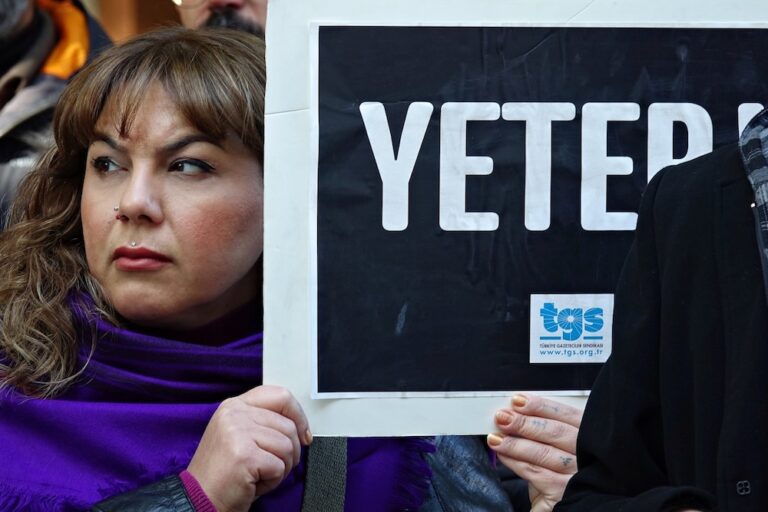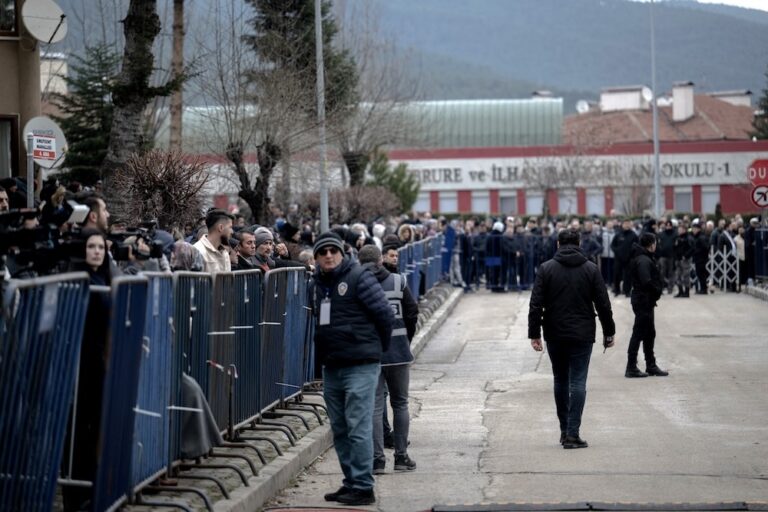The Radio and Television Supreme Council is threatening to fine Kanal D after it broadcast a news segment about the deaths of 11 soldiers.
(BIANET/IFEX) – 27 October 2010 – The Radio and Television Supreme Council (RTUK) has accused Kanal D television station of “reflecting frightening features of a terrorist organization” after it aired a news item about the deaths of 11 soldiers in Semdinli/Gediktepe (in the southeastern province of Hakkari) and the statements of families who had lost their children. If the station fails to provide a defence that the RTUK considers sufficient, it could face a fine ranging from TL$375,000 to TL$740,000 (approximately € 190,000-375,000).
Kanal D is being penalized for a supposed breach of article 4y (“principles of publication”) of Law No. 3984 on the Establishment of Radio and Television Enterprises and their Broadcasts.
The RTUK investigated the main news bulletins of the channel broadcast between 20 and 22 June 2010. The council decided by majority vote that Kanal D had violated broadcast principles and demanded that it provide a defence.
RTUK members Hulya Alp and Esat Ciplak, of the Republican People’s Party (CHP) and the Nationalist Movement Party (MHP) respectively, opposed the decision. Alp gave the following reason for her dissenting vote: “Rather than showing frightening features of a terror organization, the broadcast reflected the strength, determination and union in terms of loving and defending the fatherland by the Turkish military and the Turkish people.”
In a program on CNN Turk, journalist Aysenur Arslan discussed the penalty with journalist Mehmet Ali Birand. Birand called the possible punishment a “scandal”, saying, “If the trend goes on like this, nobody will be able to broadcast anything on television anymore because of the RTUK.”
Professor Ali Murat Vural, of the Anatolia University Faculty of Communication Sciences, spoke out against this sort of pressure. He also said, however, that press freedom does have its limits and that the press should organize itself. He added that, according to public research, the media sector is held in low esteem and stated, “The media has to establish relations with other professional organizations and should sort itself out.”
Birand was critical of the fact that the statements that were broadcast of the families who suffered a loss were seen as “supporting the PKK” (the militant Kurdistan Workers Party). “Should we not give these mourning people the chance to speak? Should we censor what they say? So what shall we do? So let us not broadcast anything. Everybody should just make news on trouble-free issues, pink, beautiful and calm. You can be sure that if this approach is continued, unfortunately there will be no television broadcasts in Turkey anymore,” said Birand.
On 25 June, RTUK organized a meeting in cooperation with the Television Broadcasters Association (TVYD) which was attended by the Minister of the Interior Abdulkadir Aksu, officials of the other ministries and the television channels’ publication directors.
The television officials were warned in the course of the meeting not to broadcast any news relating to terrorist organizations that could provide an “incentive”. At the end of the meeting, a “full agreement” was announced and the relevant contextual and technical precautions were published.


